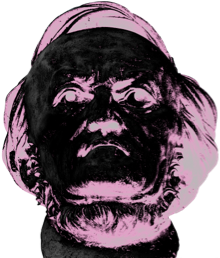Friedrich Nietzsche (1844-1900) was, in his own words, “one of the most corrupt Wagnerians.” He was one of Wagner’s most adoring worshippers and his supreme propagandist. Nietzsche’s first publication, The Birth of Tragedy (1872), was an uninhibited panegyric anointing Wagner as the savior of tragedy, art, and civilization. Then everything changed: by the mid-1870’s, as the Bayreuth Festival and the premier of the Ring cycle were coming together, Nietzsche vehemently turned against Wagner. His later prose work is full of veiled attacks culminating in The Case of Wagner (1888), an unhinged polemic full of barbed aphorism after aphorism; it is Nietzsche at his best and an absolute gas to read. There should be no mistake about it, Wagner was the single most influential person on Nietzsche and the development of his philosophy. Philosopher Bryan Macgee observed that “it is perfectly possible to write about Wagner without mentioning Nietzsche, but impossible to write about Nietzsche without mentioning Wagner.”
Nietzsche not only wrote about aesthetics, he was also a good pianist and amateur composer, writing mostly short piano pieces, choral works, and songs. Nietzsche’s compositions are typical German Romantic fare, fairly conservative and closer to Schumann than to Wagner. They are more representative of the prevailing style than a distinct and arresting compositional voice. That being said, Nietzsche composed with sufficient technique and heartfelt sincerity, and these two qualities are all one really needs to hit on a few modest pieces.
We chose two such pieces for our album: “Aus der Jugendzeit” and “Es winkt und neigt sich.” Nietzsche set “Aus der Jungenzeit,” a poem by Friedrich Rückert, in 1862 when he was 18 years old. The second Lied, “Es winkt und neigt sich,” is from 1864 and the author of the text is unknown. It is possible that Nietzsche wrote the text himself, although it has also been suggested that it is a translation of a Hungarian text.
Daniel Orsen
January, 2023

